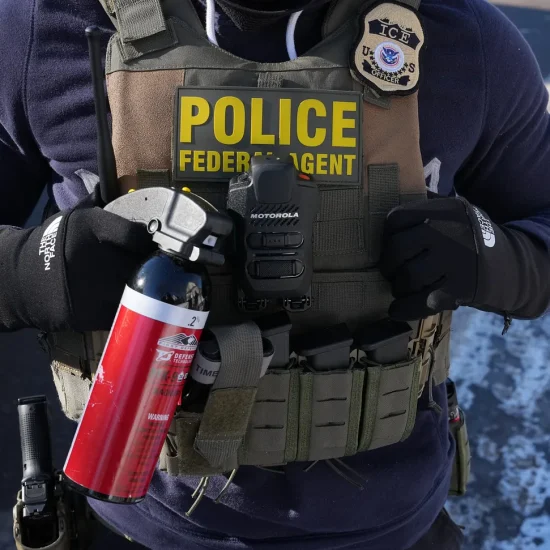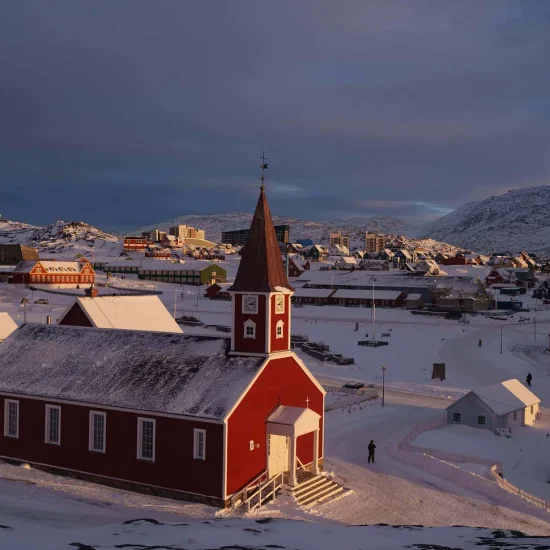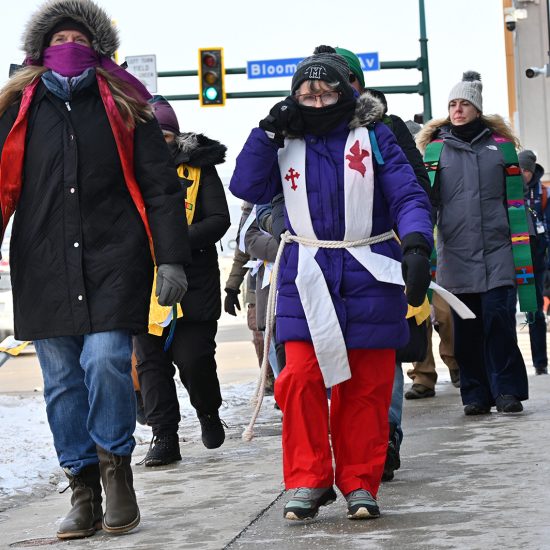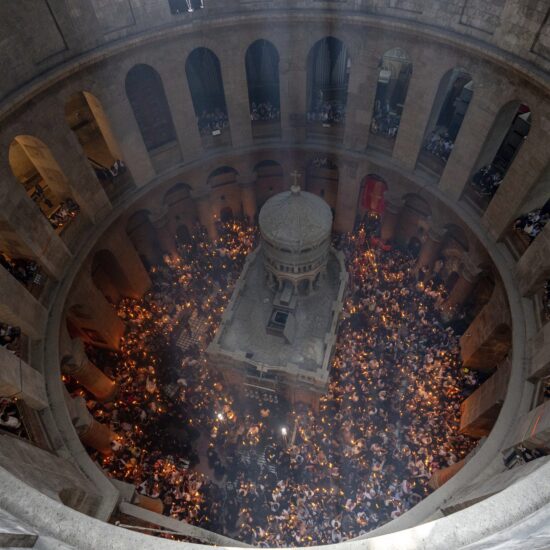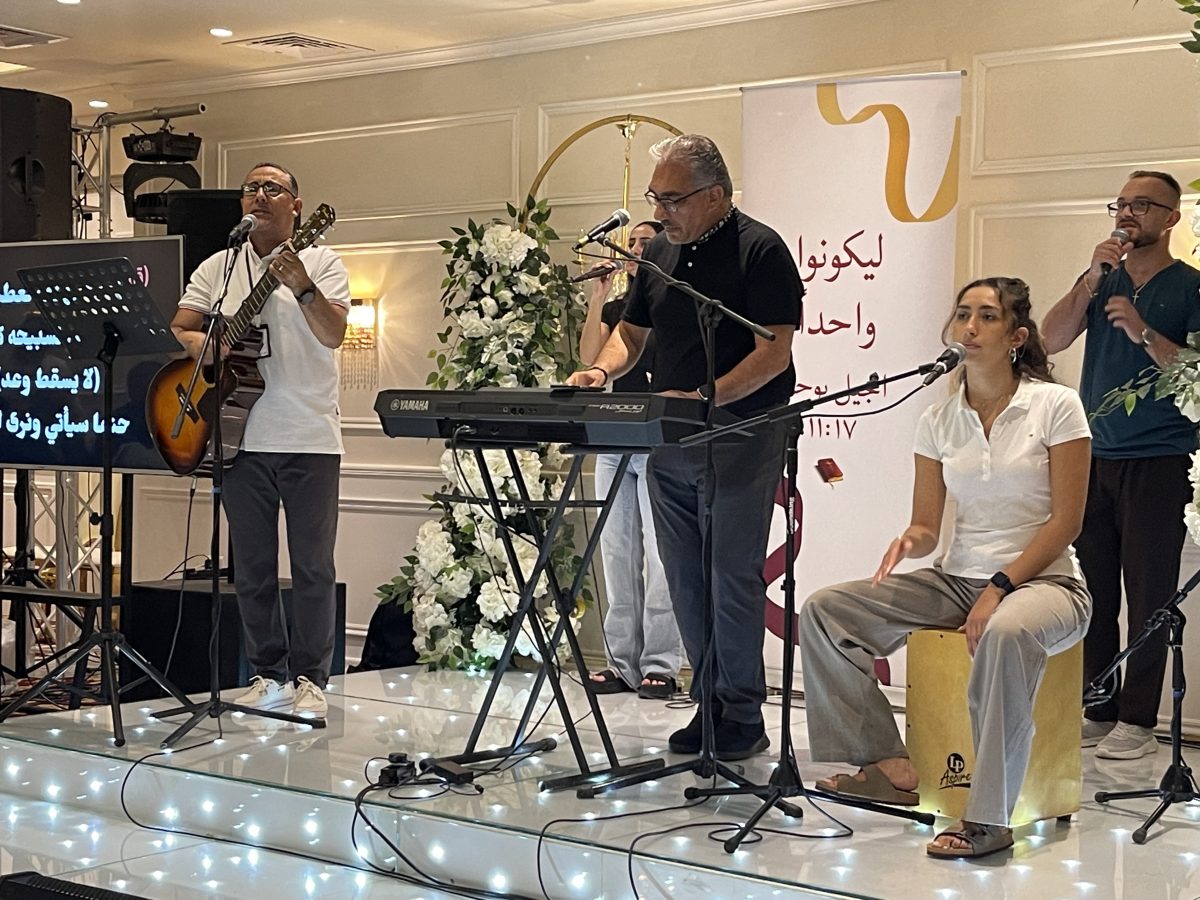
A rare event took place during the first week of September in Amman (the capital of Jordan) as evangelical Christians from Israel, gathering with fellow evangelicals from Jordan and the occupied West Bank, heard a mesmerizing address from a Lebanese evangelical pastor.
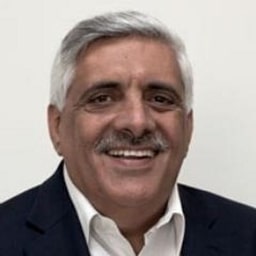
Daoud Kuttab
The meeting of Christians from the four countries is rare enough. While, technically, Arab Christians in Israel can visit Jordan and Palestine, the opposite is not true — especially since Oct. 7. The Israeli embassy that would normally issue visas to Jordanians has been closed since Hamas’ attack on southern Israel. Palestinians from the West Bank need Israeli army-issued permits to travel to nearby Nazareth or even East Jerusalem, but no such permits have been issued since the war on Gaza.
But the three-day gathering in Amman, organized by the Alliance of Evangelical Councils in Jordan and the Holy Land, also took place as the ongoing war in Gaza — where at least 23 Christians have died — has alienated and angered many Palestinian Christians, who feel their co-religionists around the globe are oblivious to the suffering the war has brought. Churches and a Christian-run hospital have been hit by Israeli shells with hardly a word from Christian leaders. When Pope Francis grieved for two elderly Catholic women sheltering at a church who were gunned down by Israeli snipers days before Christmas last year, he was nearly alone among Christian leaders to do so.
Meanwhile, politicians who publicly flaunt their Christianity have egged Israel on. Former U.S. Vice President Mike Pence approvingly signed his name on Israeli bombs destined for Palestinian and Lebanese communities.
In this climate, Middle Eastern Christians came to stand together under the slogan “That They May Be One.” The Rev. Charlie Costa, a Lebanese pastor who is director of the Living Word Ministry in Beirut, told the more than 100 participants in Amman that Christians need to seek unity even as they differ on doctrine. While Christians disagree on matters of faith, Costa said, Christians should look to biblical teaching in resolving disputes, while avoiding public criticism and defamation.
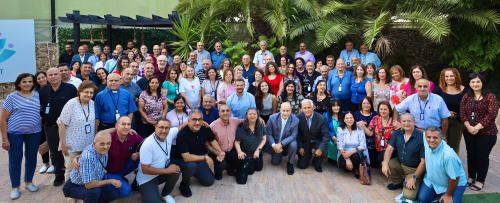
A group photo of evangelical Christians in Amman
“We need to keep these differences in confidence, communicating calmly with the offender in the presence of brothers in adhering to the biblical mechanism of resolving disputes while maintaining unity,” he said referring to a recent spat between Palestinian Christians and an Arab Christian TV anchor.
As always when people come together in this region, difficult stories were told about the war in Gaza and the dislocations caused by the Israeli occupation in the West Bank. Stories and photos of the death of Palestinian Christian families in Gaza and the difficulty of life in the West Bank brought tears. Prayers were made for a ceasefire in Gaza and an end to the war and suffering.
Matt Nance, executive director of the Christian Holy Land Foundation in Indiana, spoke on the last day of the conference, “We believe in the promise and the strength and the beauty of the Holy Land Church, that their voice is needed critically, and that our churches and our organizations should look to these leaders to lead us in understanding the situations here, the lives of our brothers and sisters here, and what God is doing here.”
He said that such meetings are important not just for these churches here, but “we believe that it’s important for the global church. Because we think that the issues the church and the Holy Land are facing are critically important to the Holy Land, it’s critically important that Christ’s followers are at the center of peacebuilding and unity building in this place, but we also think that the struggles that the Holy Land Church is facing are a microcosm of the struggles that the church in the entire world is facing.”
Nance, an American whose organization is based in McCordsville, Indiana, said that struggles between faith and empire, marginalization and oppression, and issues of justice are not unique to the Holy Land. “Even in my own country, we are dealing with some of these issues, and the voices of the Christian leaders who have been stewarding our faith for 2,000 years is a very important and necessary voice as we are trying to understand the world we are living in,” he told Arab Christians, who proudly consider themselves the direct descendants of the first Christians in the area.
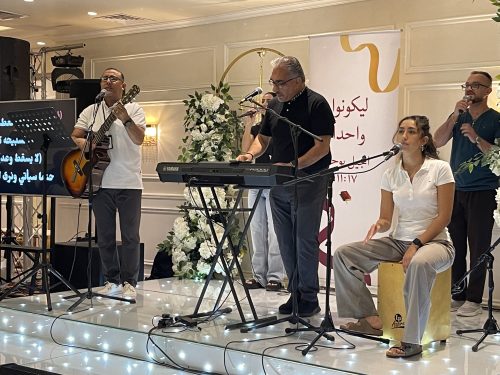
Dr. Jack Sara, president of Bethlehem Bible College, leading the group in song
The Rev. Jack Sara, president of the Bethlehem Bible College, played the piano and led the worship, lifting the spirits of the attendees who ended the conference in high spirits.
Inevitably, the mood was brought down to earth as all crossing points back to their homes were closed by Israel due to a rare violent incident at the King Hussein Bridge. A Jordanian truck driver shot dead three Israeli soldiers. Palestinian citizens of Israel were allowed to return home after a three-hour delay despite the closure of the borders. However, the Palestinians from the West Bank had to wait 48 hours before they were able to return home, Jordanian families took care of their Palestinian brothers and sisters until they were able to return home.
It was clear to all those attending the conference that for the plea of Christians from the Middle East for the global church to understand and empathize with them, Arab evangelicals must search for the common ground between themselves and the global church for this dialogue to unity all Christians behind the calls of Jesus to all his followers to be peacemakers.
Daoud Kuttab is a Palestinian journalist and publisher of Milhilard.org a website dedicated to Christians in Jordan and Palestine. Follow him on X @daoudkuttab and Threads @daoud.kuttab


